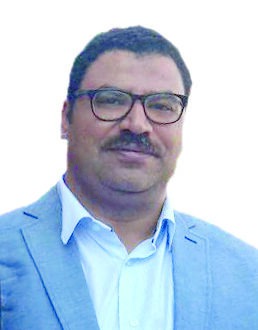For the past 76 years, the United Nations has been a glaring symbol of multilateralism. For almost the whole time of its existence, it has sought to commit itself to values of peace, development, human rights, and opportunity for all. In successes as well as in falls, it has managed to create a vehicle of hope every time the world emerges from the shadow of a catastrophic conflict. And on many a front, including peace and security, human rights, decolonisation, women empowerment and sustainable development, the international organisation has championed noticeable.
However, with challenges now totally different from those that faced humanity in 1945, there is a dire need for such continuous structural reform that can enable the organization to deal with new challenges that range, as they do, from Covid-19 pandemic and climate emergencies to new conflicts over water and energy resources.
In his remarks during a ceremony marking the 76th anniversary of the UN inception, Secretary-General António Guterres assured the world that the values which have for the last 76 years powered the UN Charter, “have no expiry date” and simultaneously that the benefits of organisational reform are already visible.
But at the same time, he indicated that challenges such as Covid-19, conflicts, hunger, poverty and the climate emergency prove that the world is far from perfect and that “solidarity is the only way forward”.
Striking a similar note, Deputy Secretary-General Amina Mohamed, insisted that although international co-operation and the United Nations have come a long way, we still have so much more to give.
In her remarks at Expo 2020 in Dubai, United Arab Emirates, Amina drew to the fore the necessity of translating global commitments and the goodwill of a host of stakeholders into national actions and international finance commensurate with the challenge.
Reflecting broad accord, Amina expressed bewilderment that although the world has the tools, knowledge and forums to prevent conflicts, it is experiencing “the largest humanitarian crisis since the beginning of the Second World War.”
Hence, came Guterres’s call for world countries to stand united behind the ideals, and live up to the full promise, potential and hope of the United Nations.”
He also stressed the importance of “securing and upholding the rights and dignity of all people, especially the poorest and most disadvantaged, girls and women, and children and young people; and building a more inclusive, networked and effective global governance.”
With the increase in such non-traditional security threats as climate change, human trafficking, migration, Covid-19 pandemic there is no doubt about the need for urgent UN structural reforms to handle new problems and more realistic goals beyond the idealism of 1945. Such reforms will, however, not suffice to face these challenges without real commitment from and positive roles by all countries. Successes or failures of the UN mirror the collective success or failure of its members.
While celebrating the 76th anniversary, let us help the UN remain a beacon of hope; and let us share efforts to build a more robust and inclusive organisation based on mutual respect, partnering, co-operation, and solidarity.






Discussion about this post